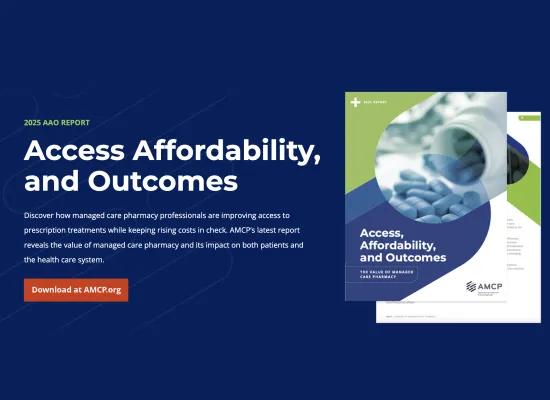
February’s Journal of Managed Care & Specialty Pharmacy Focuses on Optimizing Outcomes in Oncology
Alexandria, Va., February 3, 2017 — February’s themed issue of the Journal of Managed Care & Specialty Pharmacy (JMCP) examines challenges that managed care pharmacists face in administering oncology therapies, including considerations around patient-reported outcomes and the role of caregivers. Read it at www.jmcp.org.
Health plans and pharmacy benefit managers must balance the high costs of oncolytic drugs with their potential life-extending benefits, says JMCP Editor-in-Chief Laura E. Happe, PharmD, MPH. These payers, however, are frequently ancillary to the complex treatment decisions and trade-offs that are being made in the doctor’s office between the patient and their treating oncologist.
“It is easy to see why administration of this specialty pharmacy benefit in oncology calls for a different modus operandi,” Happe writes in a Letter from the Editor. “The traditional managed care pharmacy approach simply doesn’t work in oncology.”
This month’s JMCP explores various ways managed care pharmacists can better operationalize management of oncology agents. Among them are new considerations around patient-reported outcomes and caregivers.
Patient-reported outcomes historically have been undervalued by payers across disease states. That’s not the case in oncology. The study “Payer Perspectives on Patient-Reported Outcomes in Health Care Decision Making: Oncology Examples” underscores that in oncology these outcomes are being valued in market access and reimbursement decisions. Caregivers, likewise, are often overlooked in economic evaluations, which tend to focus on direct costs. But with cancer, the presence or absence of caregiver support can greatly influence the treatment outcome. The article “A Systematic Review of the Effect of Cancer Treatment on Work Productivity of Patients and Caregivers” highlights the loss of work productivity among cancer caregivers.
Other articles focus on emerging tools for drug selection and shared decision making. Such tools include frameworks for assessing relative value of cancer treatments based on clinical benefit, toxicity and costs. The article “Evaluation of the ASCO Value Framework for Anticancer Drugs at an Academic Medical Center” describes the authors’ experience applying one of these value frameworks within a medical center, and offers recommendations to enhance the usability of such tools.
Another article explores today’s shift from fee-for-service to value-based health care. “Improving Oncology Quality Measurement in Accountable Care: Filling Gaps with Cross-Cutting Measures” analyzes and identifies gaps in quality measures across 10 key cancer types. The authors recommend effective measures that assess clinical and patient-reported outcomes, including shared decision making, care planning and symptom control. Managed care pharmacists need to understand their role in the shift toward value-based payments is not limited merely to drug contracting, the authors note.
Other studies this month focus on real-world evidence, comparative effectiveness research, and survival data, as well as how U.S. coverage decisions for new oncology agents relate to those of other countries.
About JMCP
The Journal of Managed Care & Specialty Pharmacy publishes peer-reviewed original research manuscripts, subject reviews, and other content intended to advance the use of the scientific method, including the interpretation of research findings in managed care pharmacy. It is dedicated to improving the quality of patient care by providing its readers with the results of scientific investigation and evaluation of clinical, health, service, and economic outcomes of pharmacy services and pharmaceutical interventions, including formulary management. www.jmcp.org.
Featured News & Resources
See Full CalendarAward Applications Open
AMCP eLearning Day: Nexus Encore
AMCP 2026 Registration Opens
Upcoming Events
AMCP offers a wide variety of educational opportunities, from events and webinars to online training.







